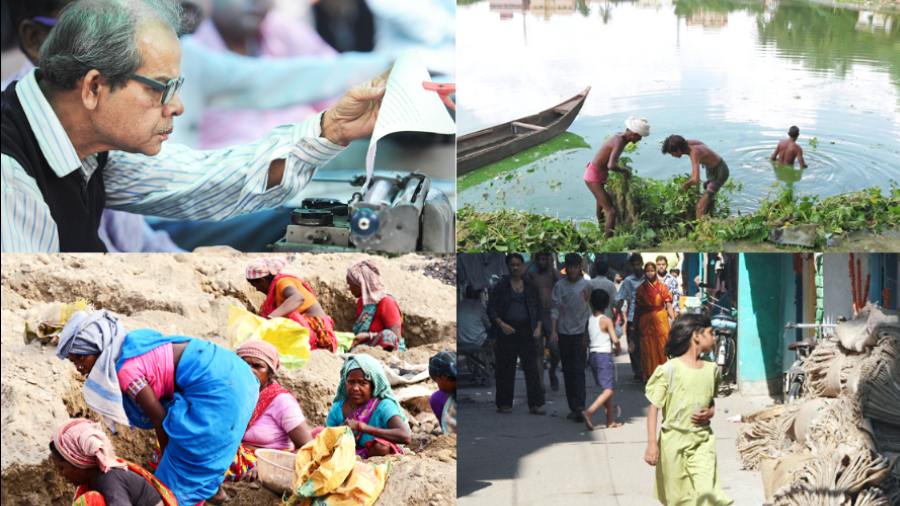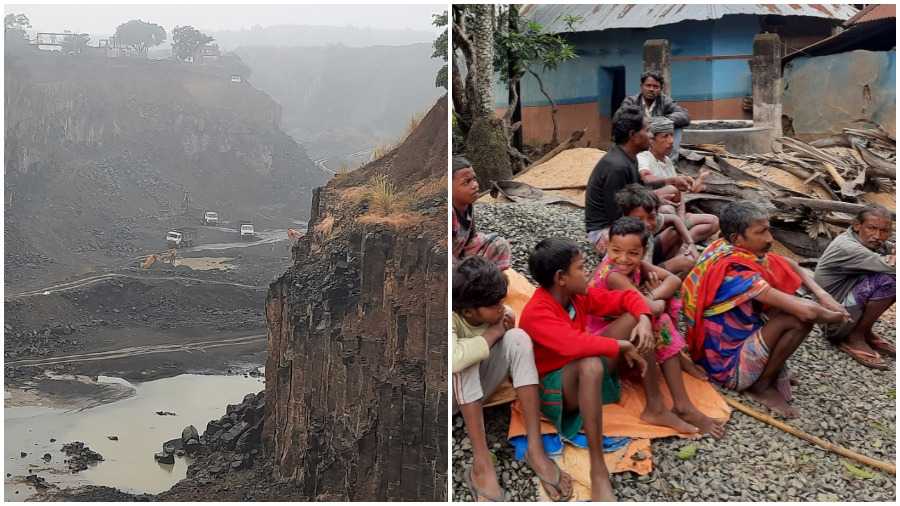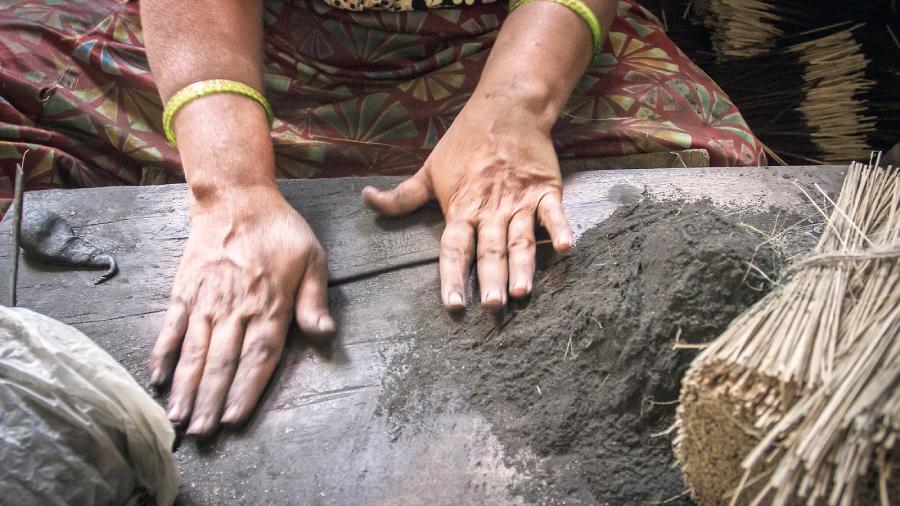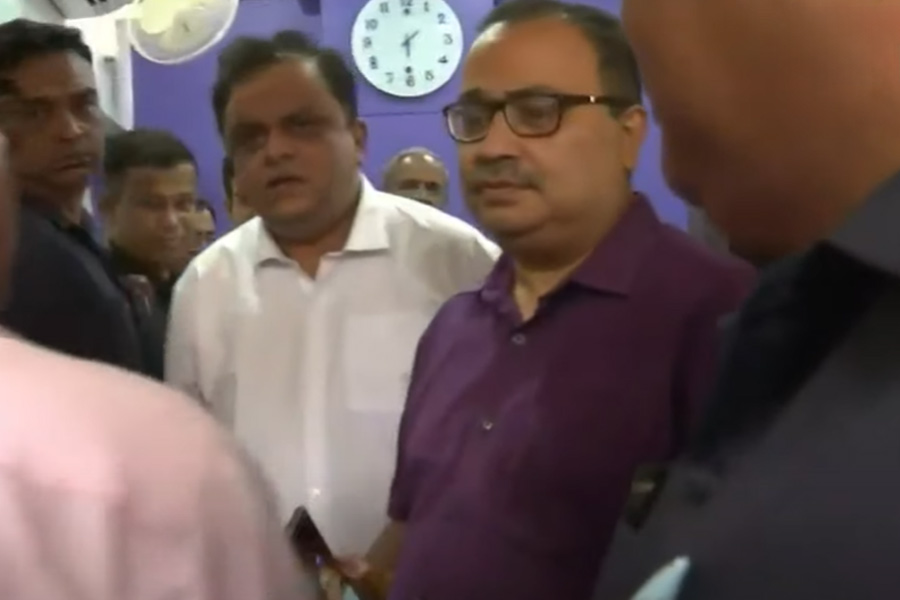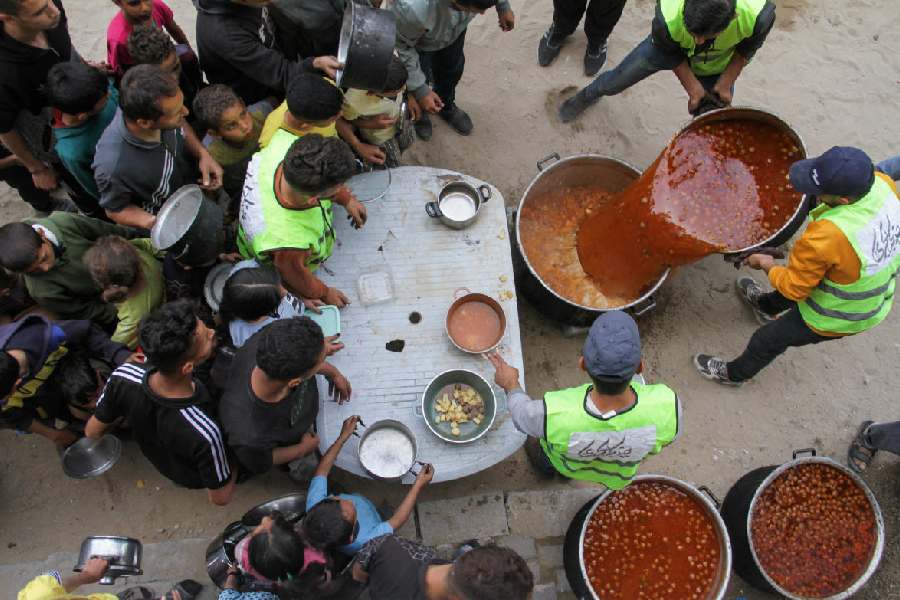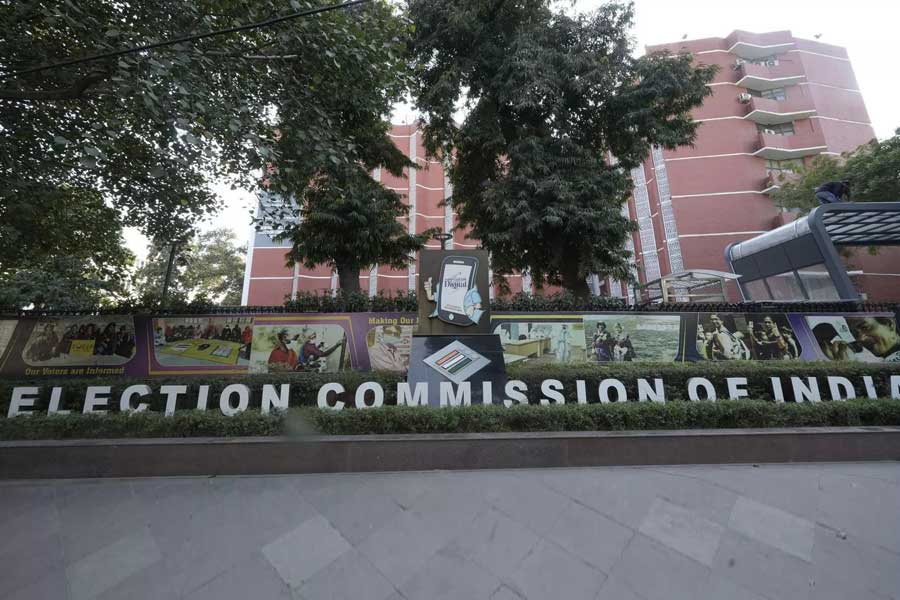In September, weeks after the school jobs scam started to unravel in Bengal, chief minister Mamata Banerjee spoke about making the state “Number One” in job creation. That month, India’s unemployment figures dropped to 6.43 per cent from August’s 8.3 per cent, according to the Centre for Monitoring Indian Economy.
But figures are most eloquent to experts; the vast majority of us may not care or dare to read the clues to the economic health of a polity but we live amongst clues; we are the clues. One such clue would be the ready availability of a vast floating population in Indian states to do all kinds of imaginable and unimaginable odd jobs for ridiculous pay.
Do these jobs count when we are talking officiously about employment?
Well, the Bengali word for jobs, the same that is equivalent to the Hindi naukri, is chakri. Neither naukar nor chakar means employee; both words apparently lack respectability, work like pejoratives, their indispensability notwithstanding. But then the Prime Minister of India has decreed that pakoda sellers should be counted in employment statistics, so…
In the novel, Sei Somoy, which is about 19th-century Calcutta, Sunil Gangopadhyay writes: “The sahebs, after coming to India, sleep till late. The first to wake up are the nafars (servants), beharas (bearers), khansamas (house stewards/ cooks), dudhwalas (milkmen) and bhistiwalas (water carriers).” He describes the “methranees” of the city as a powerful set of women, and those among them who cleaned the toilets of the saheb were apparently more powerful than the rest and earned big bucks. It is difficult to say what they were paid. Much of it depended on the whimsies of patrons.
Today, Ravi Mondal, 31, of New Garia along with two or three others, cleans the sewage pipelines of individual houses for Rs 400 per head. He says, “It is a dirty job; corporation labourers will not do it.” It takes about three hours to clean one pipeline. Nilu Ghorai clears ponds in the Rajpur-Sonarpur area. He says, “It takes 7-8 hours to clean a pond and we get Rs 2,000 for one day.” Every day from 6am to 12 noon, Mahadeb goes to half a dozen houses to clear weeds. He makes Rs 100 per garden. There are others who are hired for the upkeep of coconut trees; Rs 300 to climb all 20 feet, peel the dead skin, collect the dried fronds and make brooms of them.
Tag-maker
Ramesh Modak, 40, lives in Kalikapur in south Calcutta and makes tags. The kind that is half the size of a revenue stamp and comes attached to pieces of jewellery — small rings, earrings, pendants, necklaces and bracelets. On each of these, he writes down the measure of gold or silver used. The standard measures are supplied by the jeweller or the goldsmith. He attaches a string to each tag and supplies them to retailers. It takes a day to make 1,000 tags. For every 1,000 tags, he makes Rs 40. He works out of his house.
Wedding card assembler
Rupali Basak, 36, lives in a slum in Calcutta’s College Street-Sealdah Station area. She assembles wedding cards. She inserts the card inside the envelope; sometimes ties it with a ribbon first. “I have to finish 500 cards a day,” she says. For each card, she is paid a rupee. “But I cannot finish so many cards unless my whole family assists me — my mother-in-law, my sisterin-law, my father-in-law and my husband,” she adds.
Basta silai
Sushma Devi, 55, lives in Bowbazar. Every day at 8am she walks down to the neighbouring Basta Patty, one of the oldest wholesale markets for gunny bags. “Gunny bags are not one-time use-and-throw bags. But they get torn and we have to stitch them before they are rented out,” she says. Sushma stitches 30-40 bags every day. She is paid Rs 2 for stitching small holes and Rs 5 for big ones.
Hospital help
Sufal Hazra, 25, lives on the premises of a private hospital in Calcutta. He is from Labhpur in Birbhum. His is a shift job. “My job starts when the canteen has finished serving the patients their breakfast, lunch or dinner. We clean the plates and sort them. We wash about 250 to 300 plates after every meal. The plates of those patients who are suffering from infectious diseases have to be discarded.” He makes Rs 250-270 per day.
Agent
Biswajit Mitra, 58, stays in Harinavi in South 24-Parganas. He is what is called an “agent” in the municipal corporation. “I do all kinds of paperwork — finding a registered land deed from the government records, property mutation, collecting certified copies from the court or the corporation,” he says. He also works for a lawyer. “I handle the paperwork for him. And at times, when he misses a hearing, I appear on his behalf before the magistrate and seek a new date. This is called ‘passover’ — the hearing is postponed and shifted to another day,” he says. His is a 10-5 job, but involves a lot of running around. “For a land or property record of a particular year, I have to search several volumes of registered deeds. It takes two to three days sometimes,” he says. He is paid Rs 200 to Rs 500 per job, no matter how many man-days it involves.
Bhajai
In small-scale publishing houses, pages of a book are printed on a large sheet of paper; four pages in one sheet. These are then handed over to people who fold and arrange them so that the page numbers are in sequence. Pradip Mondal, 50, who lives in a slum near Sealdah station in north Calcutta, is one of them. The bhajais, as Mondal’s ilk is known, also cut the edges neatly, after which the book is sent for binding. For each sheet of paper, one is paid Rs 5. In a day, he folds around 100 sheets.
Jogare
Satish Mondal, 55, lives in Ajoy Nagar in south Calcutta. He is a rickshaw puller who rents a rickshaw for Rs 40 per day. He says, “I earn Rs 300 a day from this job. So I have to do additional jobs.” He hangs around the Mukundapur Market Chowk from 6.30am. This is when people come looking for labourers for various kinds of jobs. From removing cobwebs and cleaning weeds to trimming trees, Mondal is game for anything. His target is to make Rs 400 to Rs 500 a day.
Common toilet cleaner
Sushma Devi is in her 40s. She lives in a house by the Baghajatin Station in south Calcutta. Every day at 6am, she goes out with her broom and a small plastic bucket. “I clean the common toilets of the rented houses. There are many houses (I have lost count) in Ajoy Nagar, Jora Bridge, Baghajatin area. I go to these houses once every week.” She charges Rs 60 per toilet and an additional Rs 40 if she is asked to clean the walls and floor tiles.

